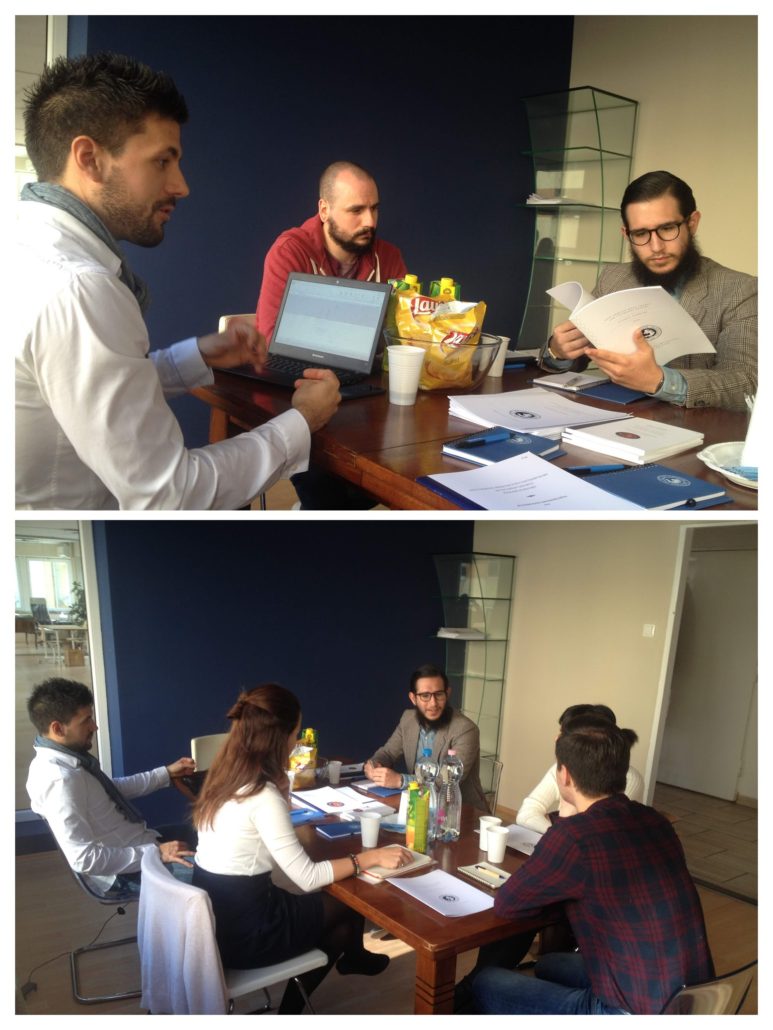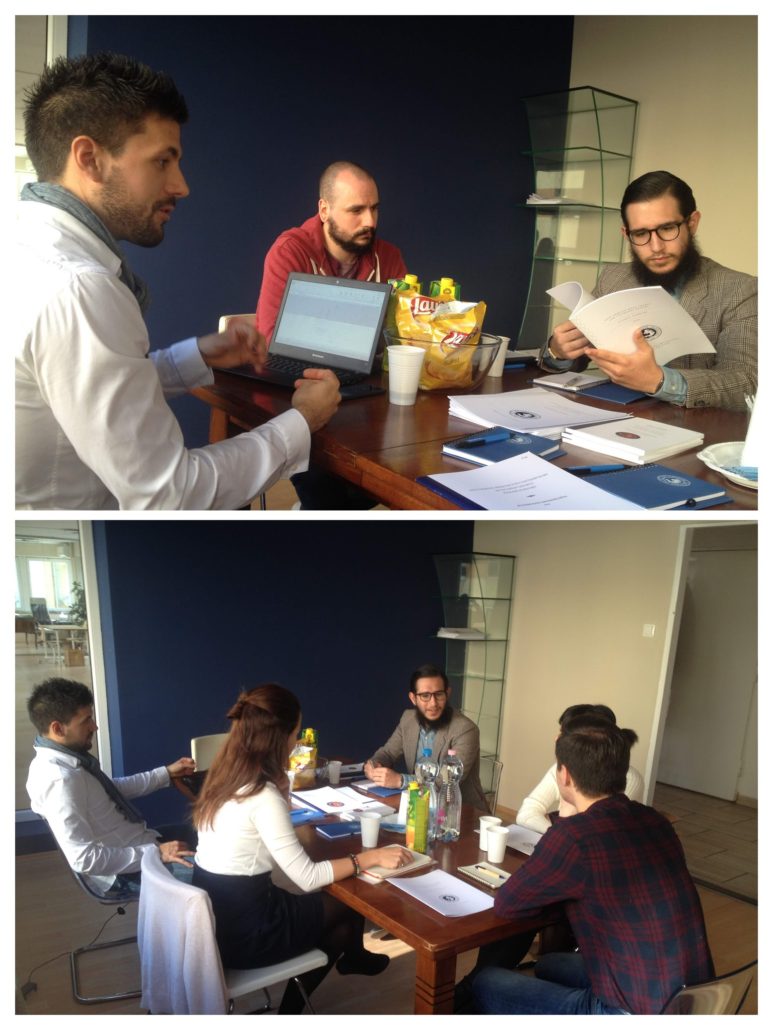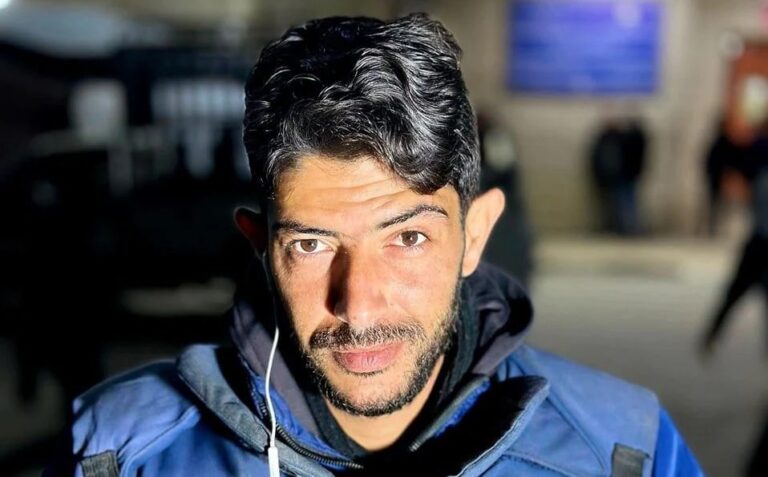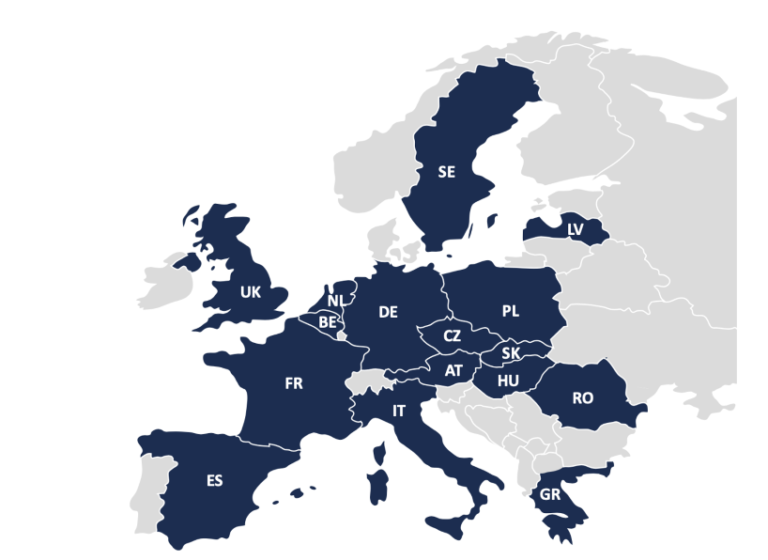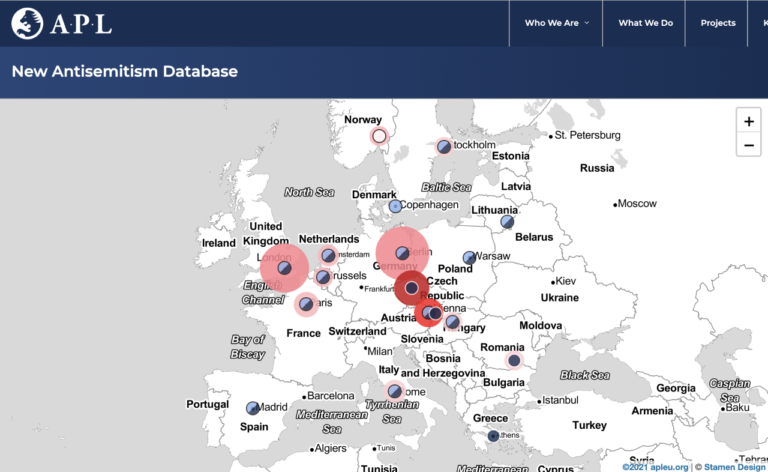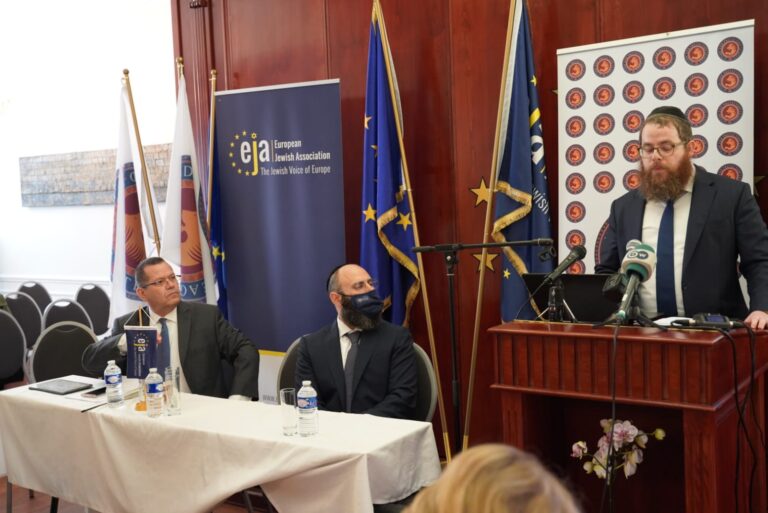The second event of the project, titled Single Incident Monitoring System For Fostering Security of Jewish Communities, took place in Budapest on the 7 of November 2018.
We invited representatives of our partners (from Chabad Slovakia and the Polish Fundacja Chai) to visit the Action and Protection Foundation’s (APF) office for a 1-day training. The purpose of the meeting was to present the work of the APF, particularly those methodologies and mechanisms that have been effectively and successfully applied to counter Anti-Semitic incidents in Hungary. Also, two Hungarian data analysts (native Polish and Slovakian) took part in the training since they will be involved in the monitoring process in Slovakia and Poland in early 2019.
As a result of previous cooperation, the project partners were already familiar with the mission of APF, though they did not know the organisation’s structure and daily workflow in detail. Therefore, a detailed introduction was given to them about APF’s history, the necessity of its establishment six years ago and its work structures. Kalman Szalai, Secretary of APF and Orsolya Nagy, Head of the office, introduced the three pillars of APF’s work (research & monitoring, education and legal protection) and how these elements influence each other. They underlined that scientifically well-grounded research & monitoring are necessary for two main reasons: 1/ to receive a clear and accurate picture of anti-semitic phenomena in contemporary Hungary; 2/ to develop our action programs, including education, legal protection and lobbying based on the accurate and objective data gained from the research.
Chabad Slovakia and Fundacja Chai have not yet implemented programs specifically created to face Anti-semitism; therefore, we highlighted our work’s unique features and peculiarities. Having an eye on the project focus (establishing single research & monitoring system in the region), Krisztián Nádasi, lead researcher and Zoltan Tatai, monitoring expert, gave a thorough description of APF’s monitoring system. They presented effectively managed cases and also talked about our work’s challenges, difficulties and strengths. APF staff also highlighted the competencies & skills that are necessary for each phase of the monitoring process.
